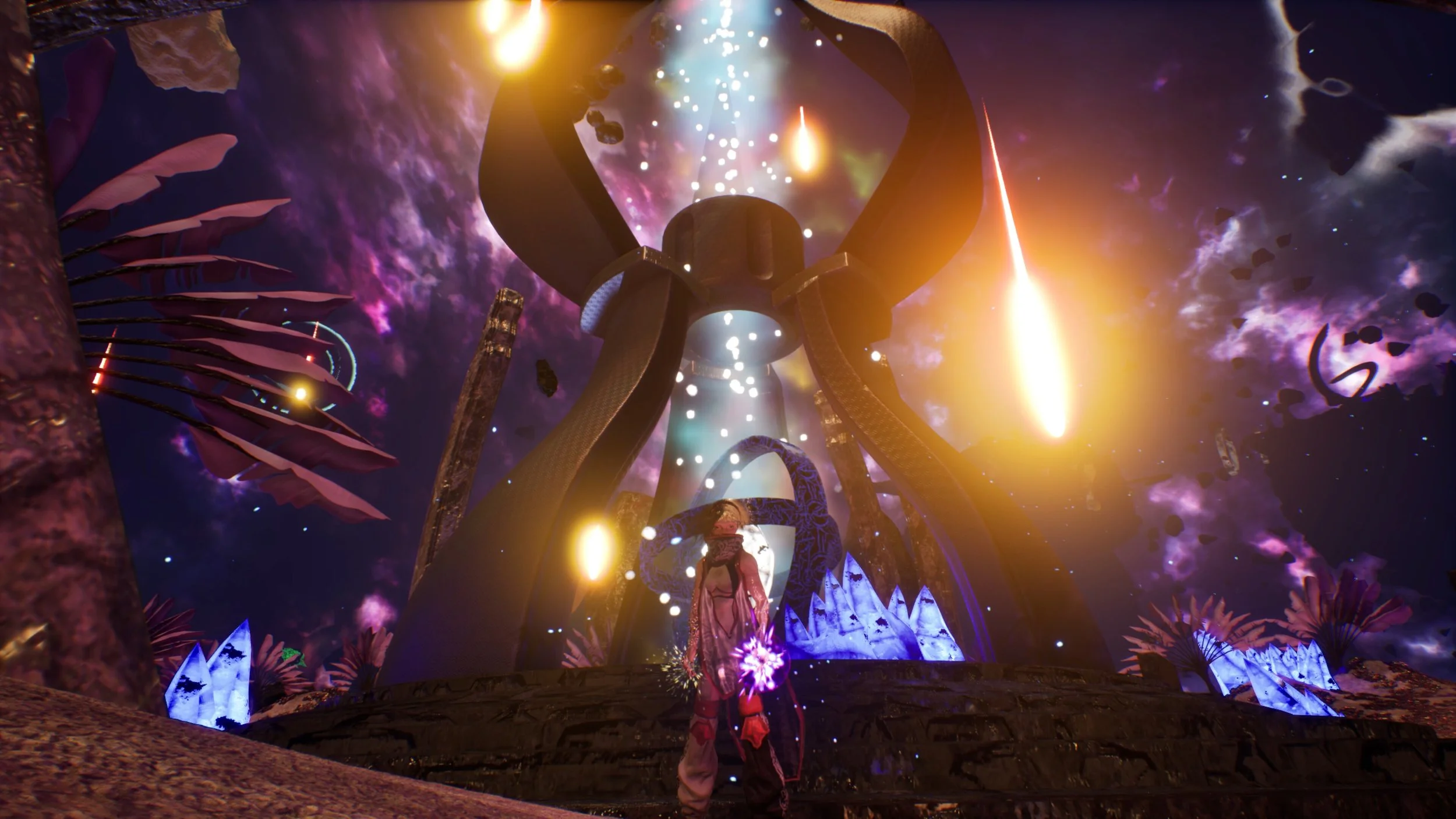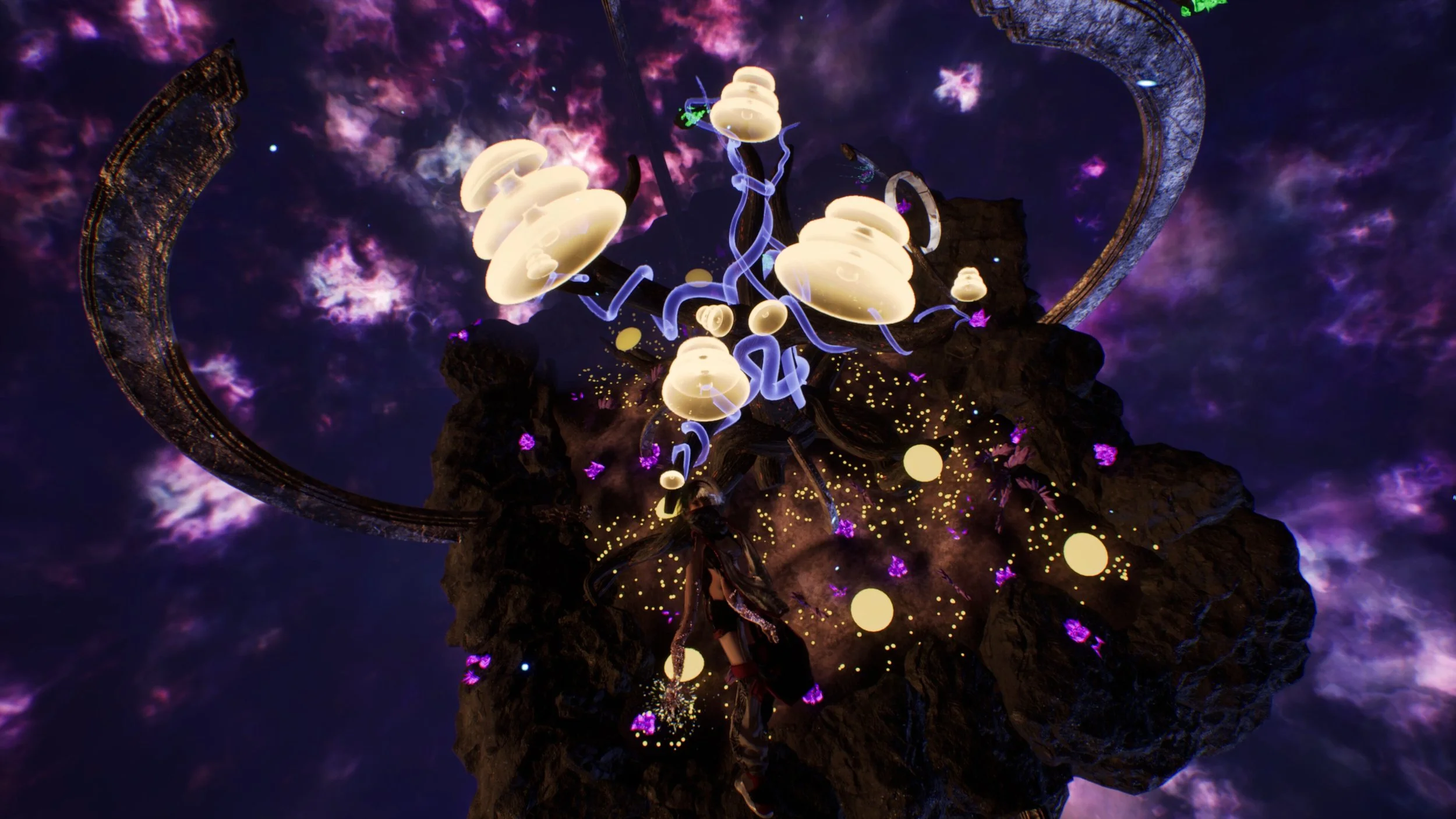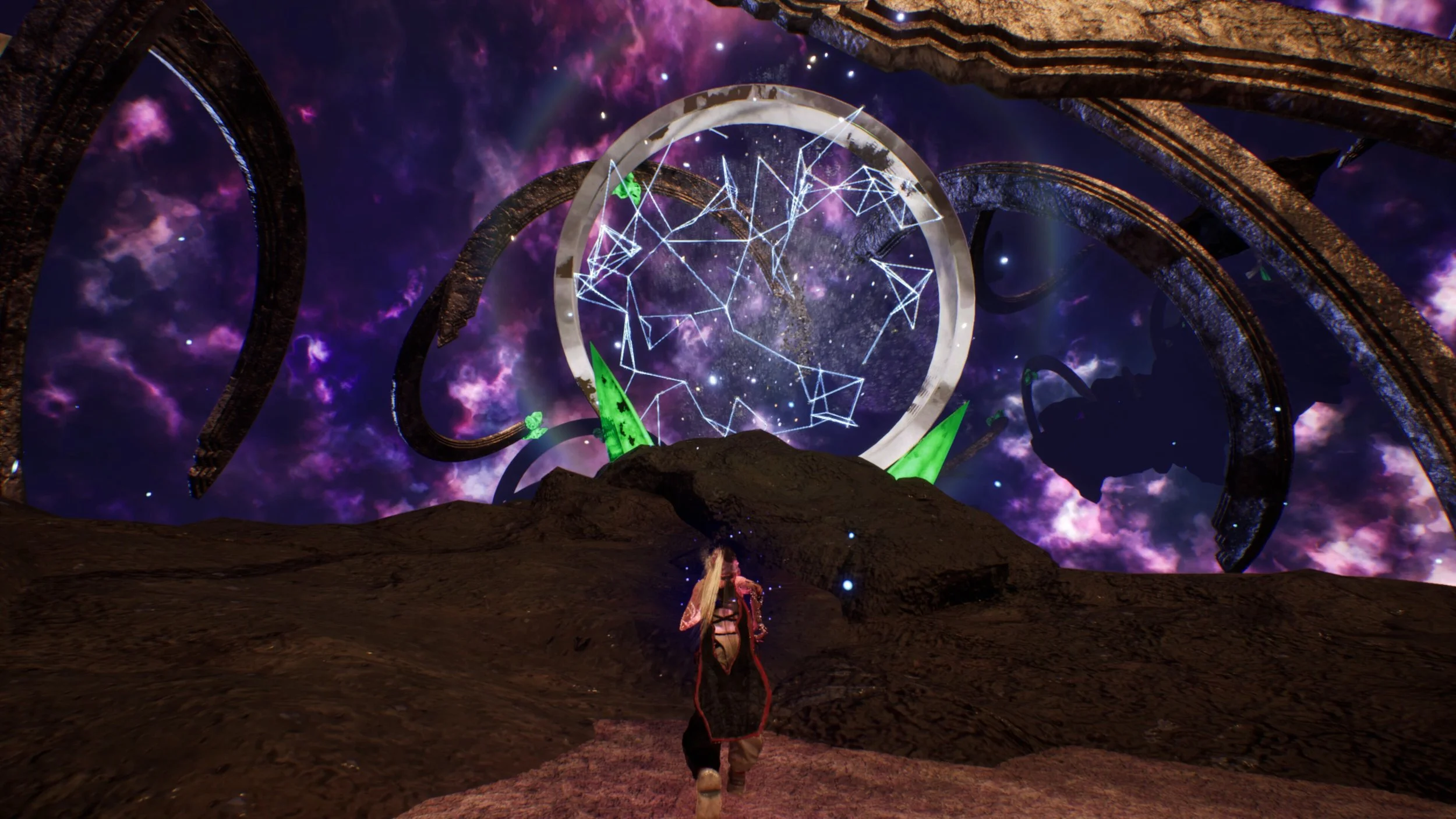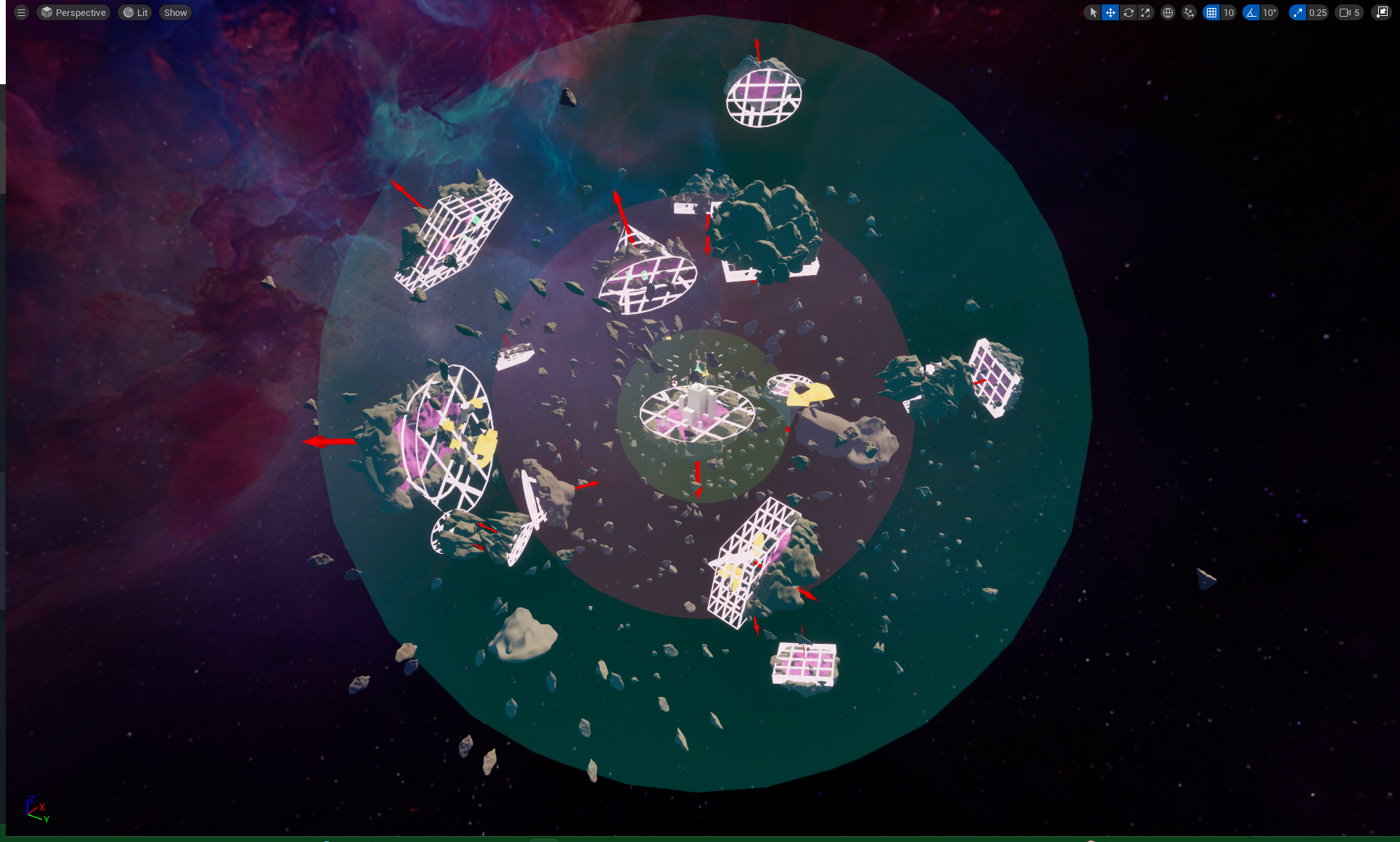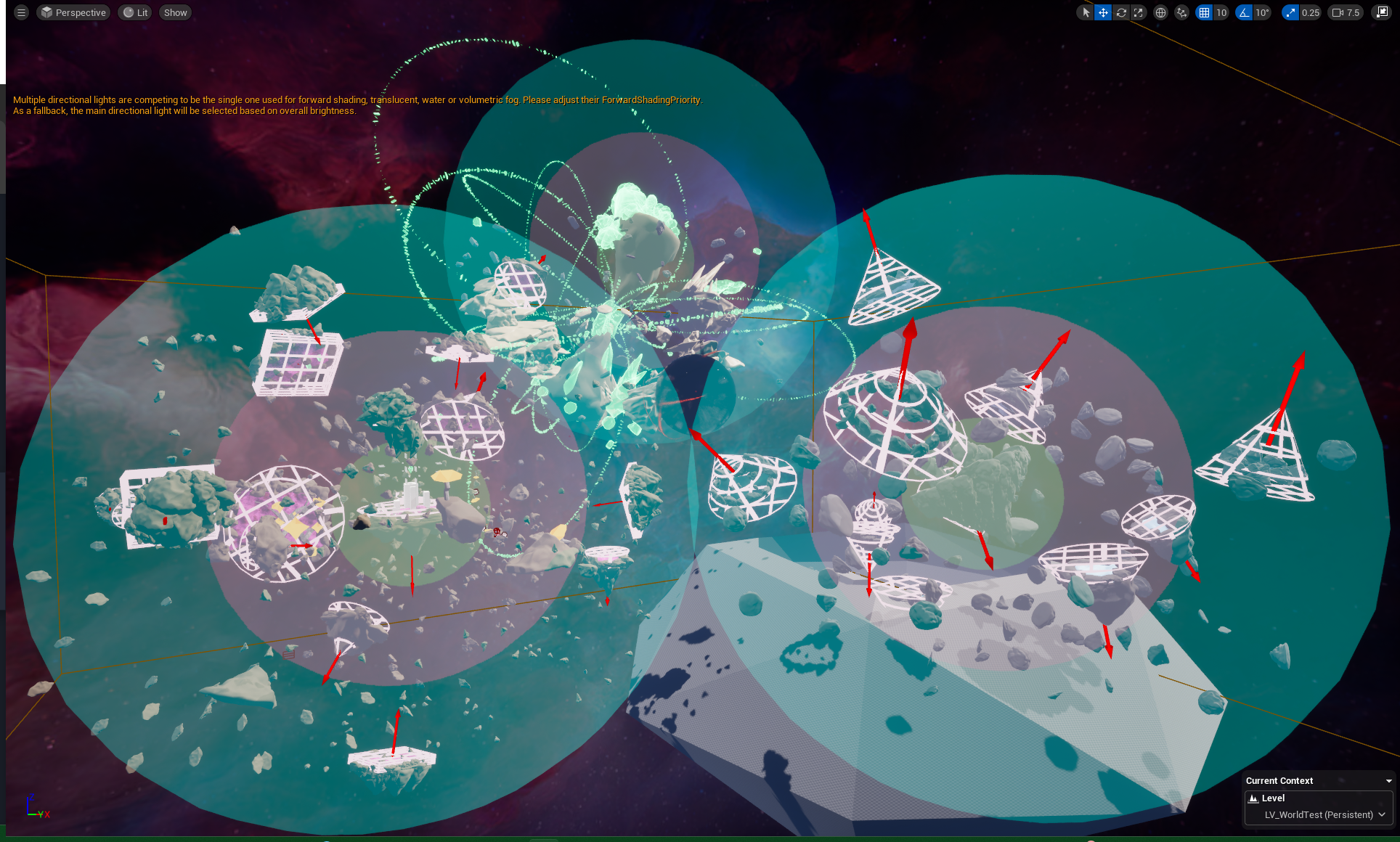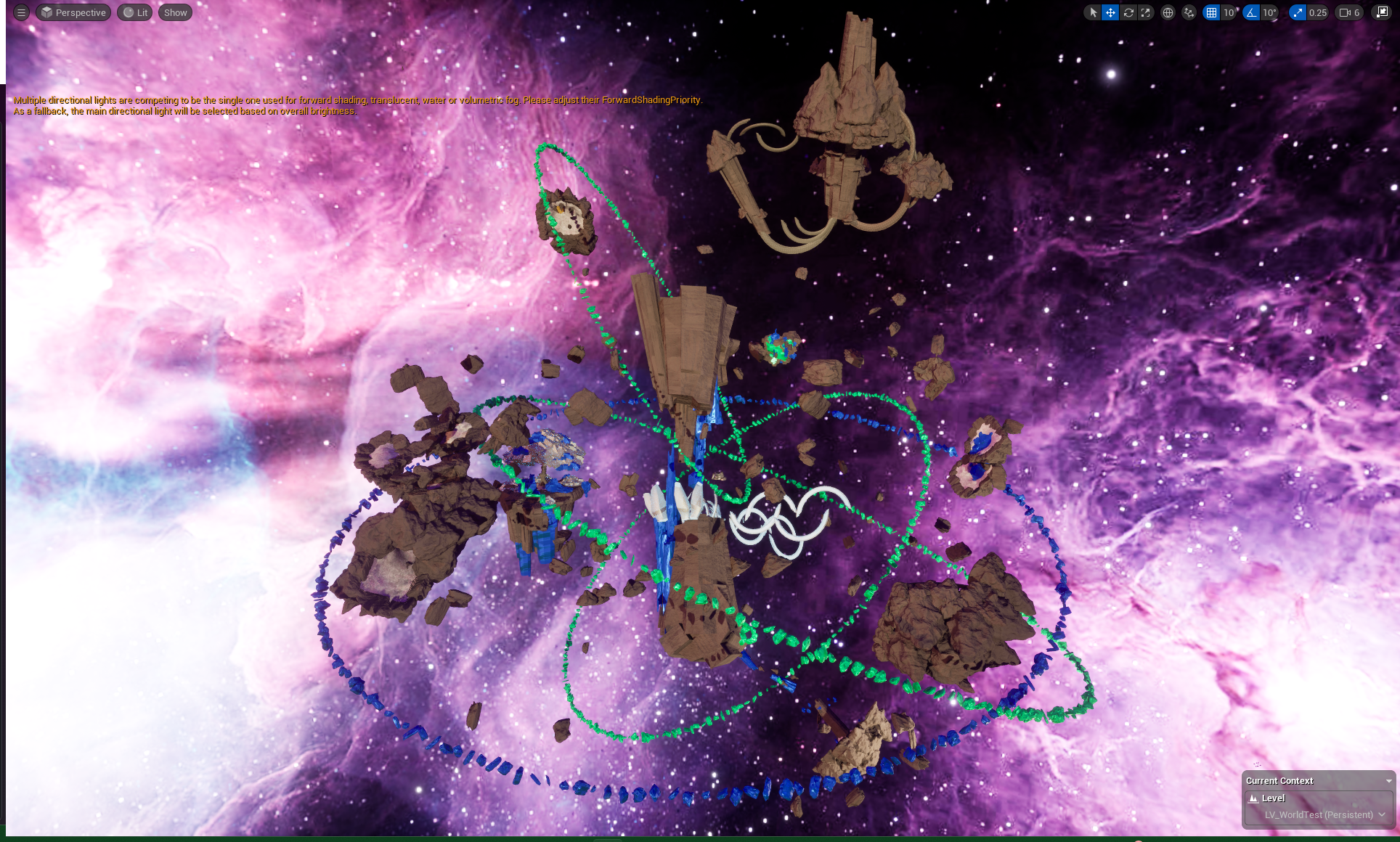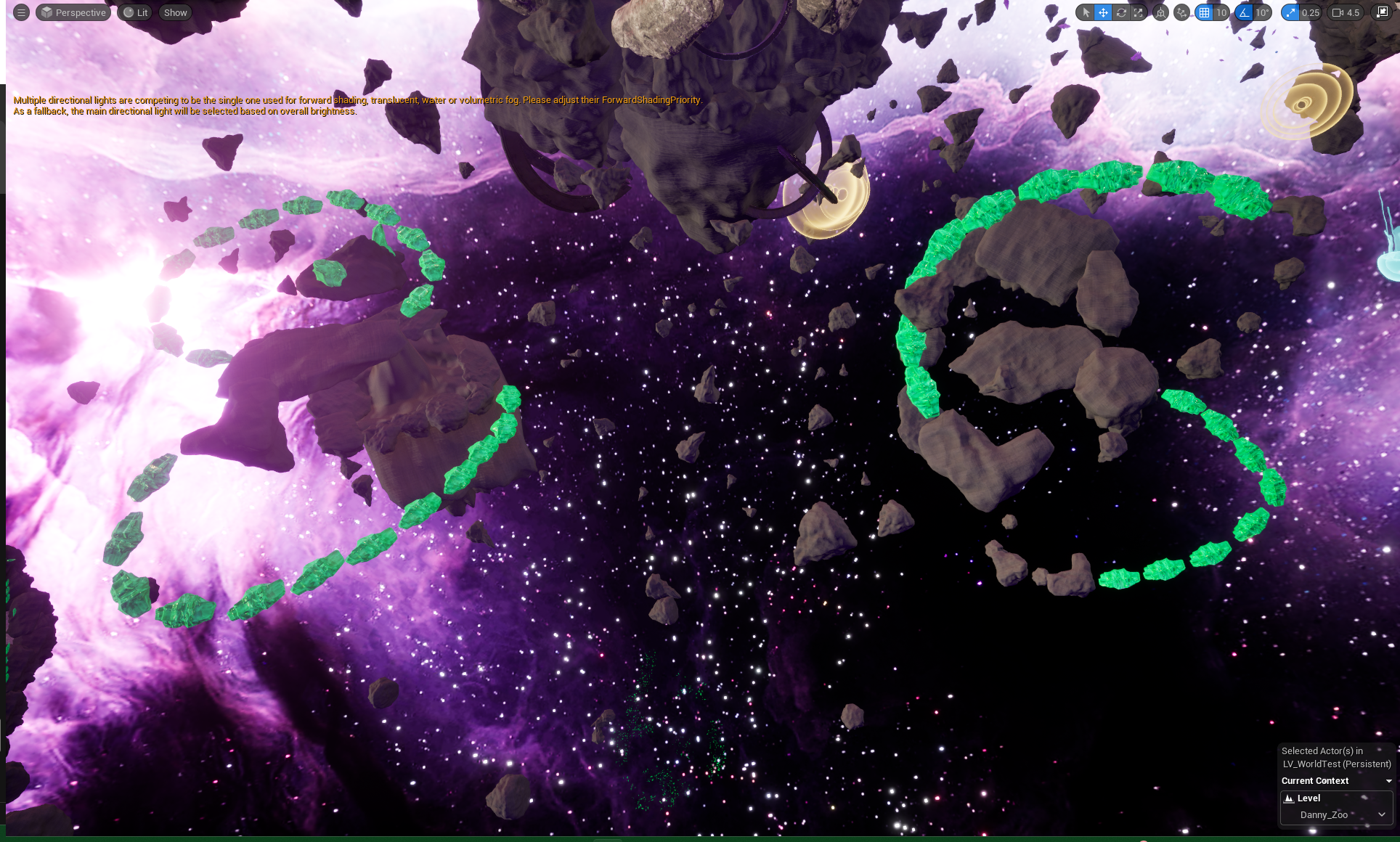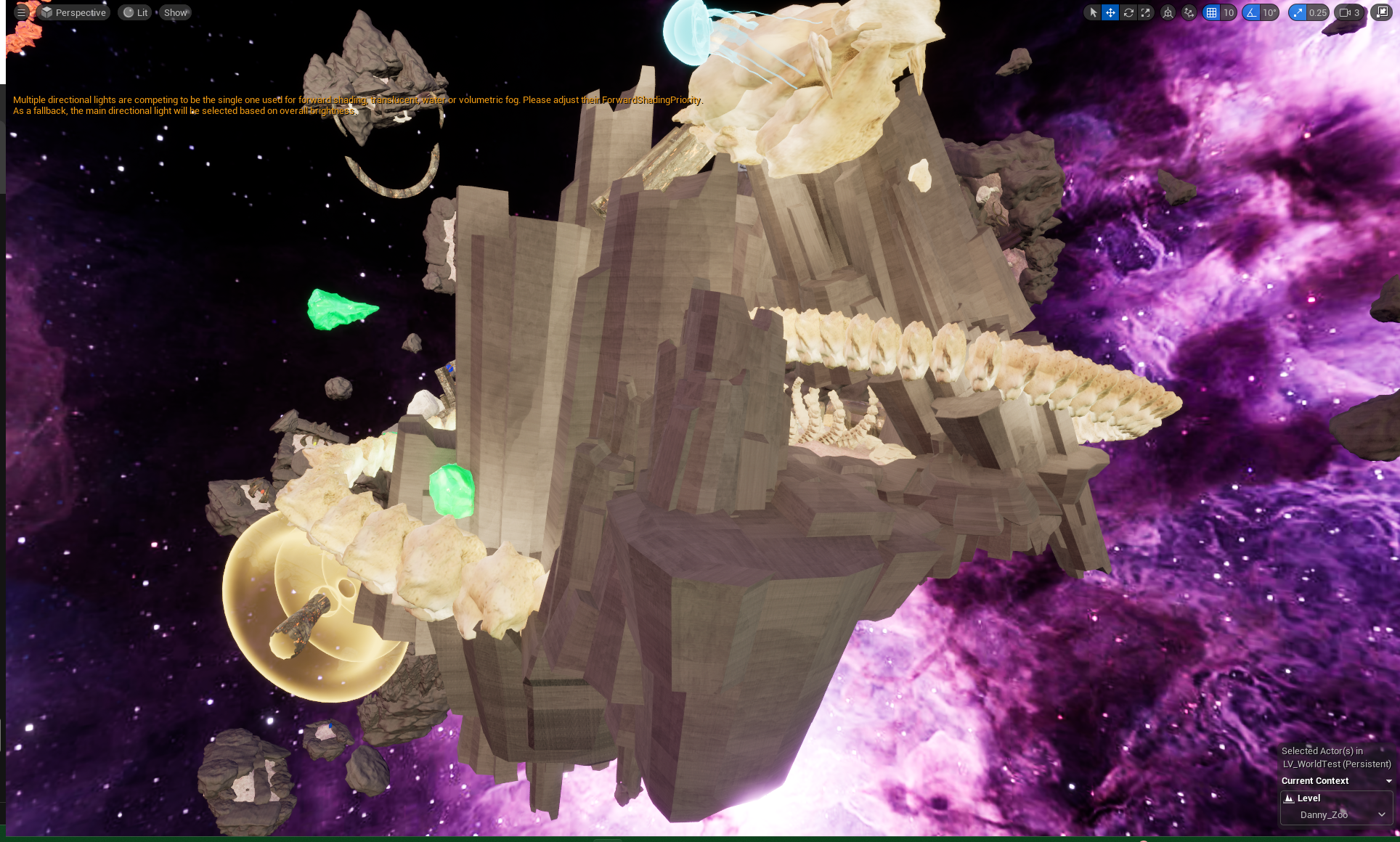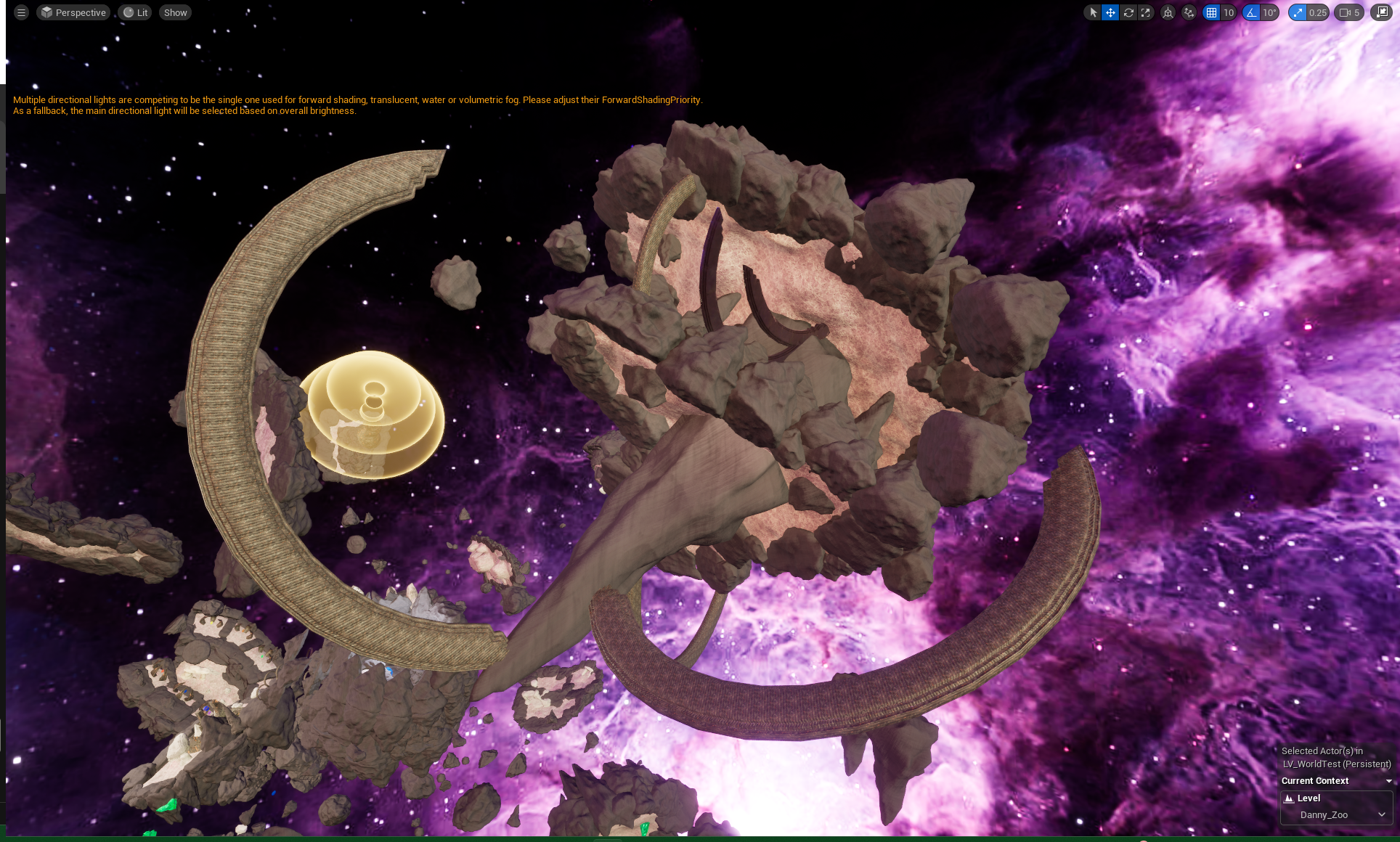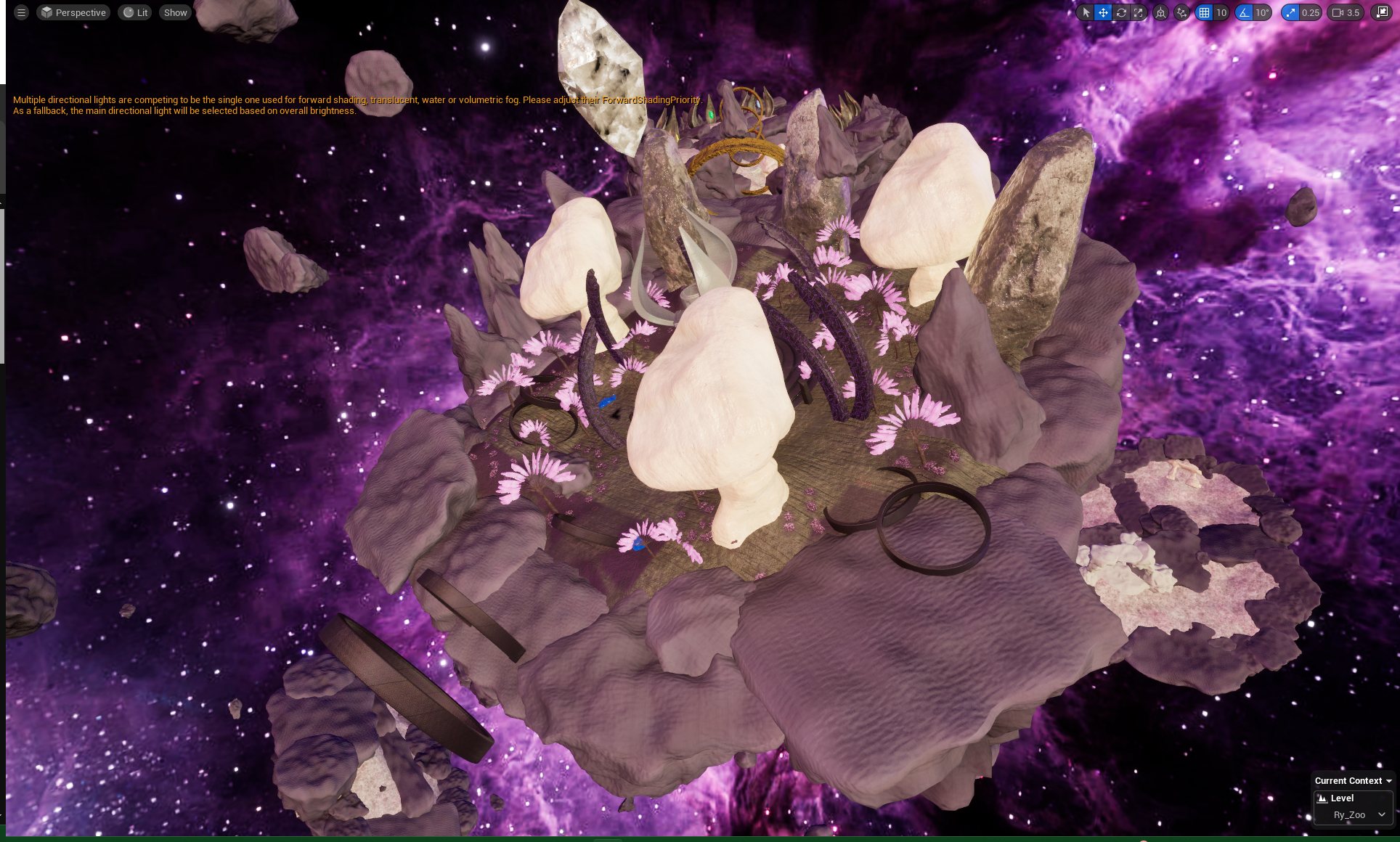IMVI: ECHOES OF HARMONY
Trailer
Details
Description: A brand new experience where you use the push & pull mechanics of the Black and White Singularity to traverse through a broken, ancient civilization while you try to piece together what occurred here.
Software: Unreal Engine 5
Team Size: 23 team members
Development Time: 7 Months
Platform: PC (controller compatible)
My Roles: Open World Designer / Layout Designer
Open World Designer / Layout Designer
My Responsibilties
Construct an entire Region
Design one region of the game - Nature - and give it life for players to explore
Construct islands that players can land on with each one having a unique identity
Utilize “hero assets” to further amplify the design of the region to help distinguish it from the other regions.
Layout and Structuring
Paint a relaxing atmosphere where the player progress at their own pace and take in the environments
Design the island structures to be open and welcoming from any angle the player enters.
Give enough room for the player to explore the Black & White Singularities while reaching certain islands.
The Golden Path
Create and outline a “Golden Path” that the player can follow through the game to not get completely lost
Highlights the most important areas to explore that progress the game forward
Allowed these areas to shine the most and create memorable locations
Design Process
Initial Level Layouts of the World
When we were first discovering what the concept of the world was going to look like, we took a backseat and decided to look at the game as a whole. What is this game and how do we want to show it to players?
Our biggest inspiration is the game AER Memories of Old - this game is very open with its level design and allows the player to fly around like a bird to explore. Since our main mechanic is using Black and White Singularities to examine around, this felt like a natural example to glean from.
With the inspiration set, I went ahead and created my designated region, Nature. Each region is held within a sphere to center all the islands around the Shrine island in the middle. The Shrines are the main goals of the game where you have to relight them in order to bring understanding to the world.
Blending of the 3 Regions
We created 3 distinct regions - Nature, Harmony, and Balance. Each one had a particular set of art pieces in them to help distinguish one from the other and create a sense of uniqueness between each region.
My designated region, Nature, uses mushrooms in the islands, with one of the focal islands being the Elder Tree. This helped players recognize major landmarks and remember which region they’re currently in.
While Nature had mushrooms, the other 2 regions - Balance and Discovery - had their own key assets. They used quartz bushes and large mineral deposits respectively. We originally included all of these assets in all 3 regions, but decided it felt more unique and cohesive if each region had their own designated assets.
The Golden Path
A problem we noticed early on was players getting lost and feeling like they don’t know where to go next. In an open-world game like ours, this issue wasn’t a surprise but it was still something we needed to plan for. The consensus became the Golden Path. In each region, there is a carefully constructed path that connects the islands in an order that naturally leads the player to their next objective and the final goal in each region.
I was the principal designer for the Golden Path. I first started in the Nature region since I was most familiar with it, and started to see natural walkways that the player could travel from. Then I framed these walkways to lead towards the next island in the distance, effectively chaining them together to form the Golden Path. There are a total of 7 islands, including the Shrine island, in the chain.
On each of the islands is a Memory Fragment that the player needs to collect to gain access to the main Shrine Island. The Golden Path follows each of the fragments and each one is placed in a view distance of the next island structure.
After I finished the Nature region, I moved onto Balance, then Discovery. I went ahead and shifted the existing islands into new locations, that way they were framed better for the player to follow in a line. Each region has an outer island in the chain that allows leads towards a different region as well. This was trickier to design and didn’t come to fruition until I went into the other 2 regions and planned out their Golden Paths as well.
Once everything culminated together, the path was set and players found it easier to navigate if they ever got lost while roaming around the open world.
Postmortem
-----
Postmortem -----
What Went Well?
Open World Design
We had an early idea of how the overall world was going to look like.
Iterated quickly on the design with the 3 initial Level Designers on the task
Given control of the overall World Design when establishing the Golden Path in each of the 3 regions.
Creating a sense of the Unknown
Wonderlust attributed to the sense of not knowing what was out there in the design
Every island had something unique to them which helped bring more “unknownness” to the world
What Needs Improvement?
Decision Making
Decisions about the core gameplay were still being decided around our 1st Playable/Vertical Slice milestone, and it deterred the team from accomplishing necessary goals at the time.
Intermediary mechanics were cut late in the project, and some of the World Design had to pivot because of the changes. It ended up feeling better being cut
Art Direction
Our art direction wasn’t finalized until late in the project, which, in turn, affected how some of the world layout would be.
Lots of Revisions
Revisions are good & healthy in any game, but since a good amount of our decision making for core concepts weren’t set in stone for a while, we had to change many of the designs to keep up with the revolving ideas.
What Did I Learn?
How to design for an Open-World Game
Learned early on how a massive world would look and feel to play.
Once one region was in a good spot, I was given the directive to go into the other regions and spruce them up to be on the same level as the 1st region, Nature.
Iterate on the fly
Our game’s development was very fluid and changed a ton. Keeping up with the vision of the game and being in constant communication with the Leads, Producers, and the Game Designer helped me see the end goal of the project.
Back and Forth Communication with Leads
Felt heard and respected by my Lead, Producers and the Game Designer. I was relied on greatly for the Level Design of the game and I appreciate their trust in letting me design freely with the objectives I’ve been given.

